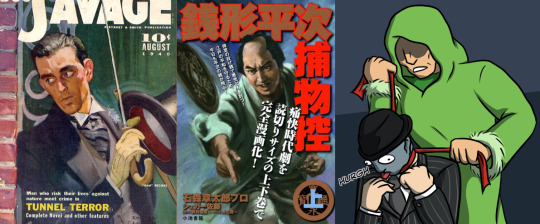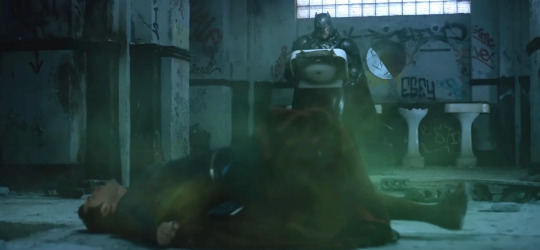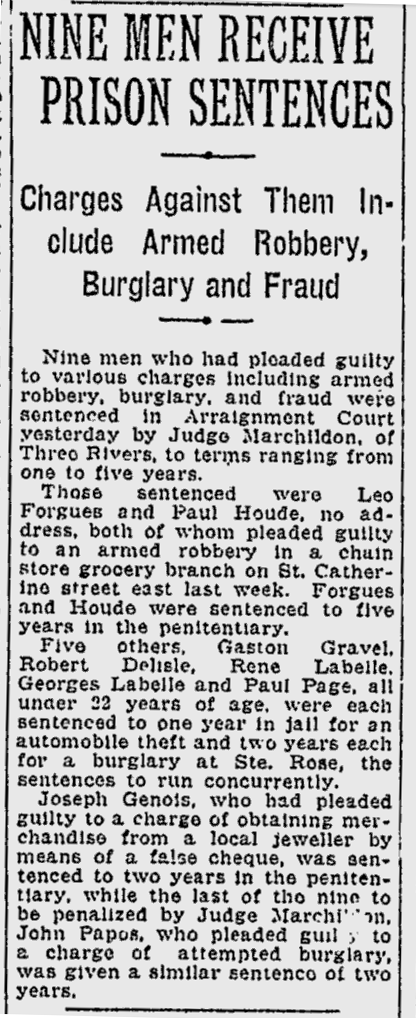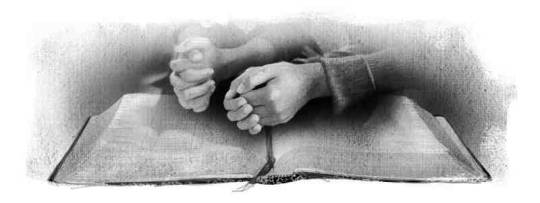#both john and paul are the mean judges
Text
Beatles Books as vaguely defined friends and relatives at a party you attend with a new crush, whose name you keep mispronouncing.
The longer you stay, the more trouble you have remembering what the occasion was.
The lights keep changing. Shortly after you arrived, your crush shrunk to the size of a mouse, and scurried away. You’re on your own.
The Beatles (Bob Spitz) greets you, an attractive silver fox who seems to be shunned by most of the others. You wonder why. It’s as easy to imagine him as a crying wreck as it is to imagine him on a golf course. Here, There, and Everywhere (Geoff Emerick) disrupts your musings by pulling tapes from his mouth. Seeing your discomfort, he stops and hands you a photograph of John Lennon and Paul McCartney singing into the same microphone. As he does, his pupils take on the shape of hearts. Someone called George announces his intent to poison him.
Anthology (The Beatles) saunters in, puts eight arms around you, and promises to tell you the whole story. They proceed to speak in tongues, and throw popcorn at you. Stu Sutcliffe jumps from a pendant around their neck, lands on the floor, and scurries after your crush.
“It’s always like this,” says Body Count (Francie Schwartz). “I assume you don’t want to listen to my story about a gifted woman who got locked up for depression? That’s fine, I can also talk about frottage, and a certain man’s curves.”
“Oh, stop it,” says John (Cynthia Lennon). She turns to you. “My advice is: Turn around and run as fast as you can.” She demonstrates what she means by disappearing, leaving behind a purse filled with cheerful letters and drawings of herself getting married and giving birth. Everything smells of olive oil. Francie spots Loving John (May Pang), and rushes to her, greedy for gossip. Loving John (May Pang) is everyone’s favorite, because she doesn’t really know anyone very well, but she knows how to make everyone feel comfortable by saying things that make sense in the moment.
Living the Beatles Legend: The Mal Evans Story (Ken Womack) ends up taking her home; they both live at The Fringes. Her home is a little further than his, which is just this side of Weird whereas she’s all the way in Montauk, but he’ll make sure she gets there safely.
To make up for the disappearance of your crush, Remember (Mike McCartney) cuts your hair. Each snip of the scissors slots a black-and-white picture into your field of vision. Windows in time blow noise and heat in your face, and visions of a screaming band that looks a bit like the young Beatles. Then there’s the quiet heat of summer, towels rippling on the line, and a drain pipe screwed to the wall of a house. He talks about childhood, and you’re almost there, but you never will be, because he won’t let you in. His more verbose twin, The Macs (Mike McCartney), recites letters his brother and John wrote from Hamburg, but you can barely understand what he says, because he stuffed a tissue into his mouth.
“It’s only a story,” says The Lyrics (Paul McCartney). “Pleased to meet you. I’m a storyteller myself.” He sings a love song. “I must have thought about these things when I wrote it,” he muses. “Interesting. What a mind, as Linda used to say.”
He tears a few pages from a diary he kept in Paris in 1961 and hands them to you without comment.
At this point, the party is dissolving. Crocheted furniture floats away and stretches.
“Am I too late?” Skywriting by Word of Mouth (John Lennon) squeezes himself out of the lowest drawer of an antique desk, where, judging from by his crinkly pajamas, he slept. “I’m in pieces. Mend me with glue.”
“I will, I will!” Tune In—All These Years, Vol I (Mark Lewisohn) yells ecstatically. “I’m so glad you could make it Sit down with me and celebrate the heritage of Liverpool.”
Skywriting drapes himself around Tune In, who starts purring and rutting against him.
“Excuse me?” It’s The Fifth Beatle: The Brian Epstein Story (Vivek Tiwary), torero boots clicking on the invisible floor as he strides towards the couch. A spotlight follows him. “I’m managing this show, and I insist on expanding the scene.” Around them, a hotel room forms.
Skywriting lights a cigarette. “Join us in bed, Bri.”
“Yes,” moans Tune In. “I’m so lonely. I’m the oldest of a triplet, or so they say, but the other two haven’t been born yet.”
The Fifth Beatle sits down and observes the unhinged biography losing himself in the friction of rubbing against the shapeshifting Skywriting. Finally, things reach a conclusion.
“And so,” says The Fifth Beatle, “what partially was, finished.”
“Stop repeating lines from a bad movie, Brian," says Skywriting, "you’re better than that.”
As you try to plot ways to escape through the skylight, The McCartney Legacy, Vol 1 (Sinclair & Kozinn) slides out from under the bed, a broad-shouldered lady in a bright red dress. A half-hatched alien with long legs and sunglasses squirms between her breasts, and makes mouth percussion sounds.
“Gentlemen.” The McCartney Legacy retrieves a very, very long rosary from her pocket. “Is anyone interested in an exquisitely crafted, finely wrought chronology?”
At the sound of the word “chronology,” The Beatles (Hunter Davies) crashes through the ceiling.
“Don’t fall for it!” The Beatles snatches the vocalizing baby alien from The McCartney Legacy’s chest, and kills it by wringing its neck. “Time stopped in 1968. The only valid extension are my own salacious additions. Strictly off the record.”
“I’ve been meaning to talk to you about that,” says The Fifth Beatle.
You exchange a glance with Skywriting, who is plucking pieces of Tune In from his body like children snatch pieces of dough, and sticking them in his mouth.
A camera clicks.
“Excellent.”
The Eyes of the Storm (Paul McCartney) lowers the camera, and changes into a suntanned, gleaming likeness of George Harrison. Then he changes into a fish.
“Everyone looking at the pictures will think they know,” the fish says. “They’ll have no idea!”
The floor dissolves under you. You fall into a pool, just in time to save your crush from being sucked into the drain, and after a barely audible edit you find yourself back home, with no memories at all, the taste of chewing gum in your mouth, and wearing matching tops saying, I visited Fellini’s Satyricon, and all I got was this lousy t-shirt.
(ETA: I can't believe I forgot about Dreaming the Beatles (Rob Sheffield). I guess I'll have to include him in the inevitable sequel to this...thing, as the +1 of John and Paul: A Love Story in Songs (Ian Leslie).)
127 notes
·
View notes
Text
Taylor Swift Songs - U.A. Boys
(includes - izuku midoriya, katsuki bakugou, shoto todoroki, tenya iida, eijirou kirishima, denki kaminari, mirio togata, tamaki amajiki)
summary - what taylor swift song are you two?
warnings - mention of self-unaliving (none actually)

midoriya is baby
we all know this
yes, he becomes the top hero in the world, even surpassing all might, but he still has a sweet sensitivity and kindness to him
you love that childlike innocence he’s kept for so long, despite the fact he’s gone through so much pain and hardship
you like to tease him with this song
he always protests, claiming he definitely is not little
it all has to do with his sweet demeanor, and how you wish you could protect him the way that he protects you

i know this song doesn’t immediately yell ‘Katsuki Bakugou’
but listen
hear me out okay
i can absolutely see katsuki and his childhood friend reader sort of separating after he gets a partner that isn’t you
the issue is that the partner isn’t really understanding of katsuki’s way of expressing love but doesn’t want to break it off for their own selfish reasons
so katsuki ends up confiding in that childhood friend reader
you both have loved each other for such a long time but he realized it WAY after you did
damn i wanna write a fic abt this

such a pure type of love
you both are absolutely smitten with one another, and everybody knows it
it’s like the love you see in movies or fairy tales
shoto is also a very attractive
like it’s canon that he’s considered hot
and especially as a pro-hero, people would be really really jealous and judge
but they don’t know you two
your all’s love is yours and yours alone

tenya absolutely strikes me as the protective type of guy
he takes so many things seriously
your relationship would be no different
your safety and health is his top priority
he doesn’t want anything to happen to you
just imagine him holding you in his arms after a villain attack, having you close your eyes and focus on him
he’ll always keep you safe no matter what it takes

i still think eijirou is and can be super insecure
you’re one of the only ones who can actually help him with that
if he ever needs help, you’re there
i don’t think kiri would think of unaliving himself like the song suggests
but i do think you would always have that concern for him
especially after the bakugou getting kidnapped incident
and the shie hissaikai incident
you just love him and don’t know what you’d do without him

KAMINARI IS JUST A SIMP
i feel like he’d be so cocky
i mean he fell in love with you instantly
y’all are soulmates, right??
as goofy and clueless as he can be
you love him very very much
you guys feel like you can rule the whole damn world together
you make each other so happy and confident

mirio to me is just like
that perfect guy
yes he’s a little goofy
but everything about him is just so genuine and pure
everything about him is perfect to you
he’s such a gentleman but never fails to make you laugh
it feels unreal to have mirio togata in your life
almost like magic

you and tamaki are gentle lovers
you both don’t care about flashy dates or physical affection in public
your reputation doesn’t matter
you like things private
this relationship belongs to you two
no one else has to know how deep your love goes for each other
just as long as you both know
then that’s enough
#my hero academia#boku no hero academia#gn!reader#x reader#izuku midoriya#katsuki bakugou#shoto todoroki#tenya iida#eijirou kirishima#denki kaminari#mirio togata#tamaki amakiji#taylor swift#Spotify
50 notes
·
View notes
Text

24th April >> Fr. Martin's Reflections / Homilies on Today's Mass Readings (Inc. John 12:44-50) for Wednesday, Fourth Week of Easter: ‘What the Father has told me is what I speak’.
Wednesday, Fourth Week of Easter
Gospel (Except USA)
John 12:44-50
I, the light, have come into the world.
Jesus declared publicly:
‘Whoever believes in me
believes not in me
but in the one who sent me,
and whoever sees me,
sees the one who sent me.
I, the light, have come into the world,
so that whoever believes in me
need not stay in the dark any more.
If anyone hears my words and does not keep them faithfully,
it is not I who shall condemn him,
since I have come not to condemn the world,
but to save the world.
He who rejects me and refuses my words has his judge already:
the word itself that I have spoken will be his judge on the last day.
For what I have spoken does not come from myself;
no, what I was to say,
what I had to speak,
was commanded by the Father who sent me,
and I know that his commands mean eternal life.
And therefore what the Father has told me
is what I speak.’
Gospel (USA)
John 12:44-50
I came into the world as light.
Jesus cried out and said, “Whoever believes in me believes not only in me but also in the one who sent me, and whoever sees me sees the one who sent me. I came into the world as light, so that everyone who believes in me might not remain in darkness. And if anyone hears my words and does not observe them, I do not condemn him, for I did not come to condemn the world but to save the world. Whoever rejects me and does not accept my words has something to judge him: the word that I spoke, it will condemn him on the last day, because I did not speak on my own, but the Father who sent me commanded me what to say and speak. And I know that his commandment is eternal life. So what I say, I say as the Father told me.”
Reflections (6)
(i) Wednesday, Fourth Week of Easter
In today’s gospel reading Jesus refers to ‘the Father who sent me’. In the fourth gospel Jesus is the ‘sent one’. One of the most memorable verses of this gospel declares, ‘God did not send the Son into the world to condemn the world, but in order that the world might be saved through him’. Jesus personalizes this statement in today’s gospel reading, ‘I have come not to condemn the world but to save the world’. As Jesus says elsewhere in this gospel of John, ‘I came that they may have life and have it to the full’. This is why God sent his Son into the world. There is another sending in today’s first reading. The church in Antioch, under the guidance of the Holy Spirit, sent two of their leading members, Barnabas and Saul, on mission to places where the gospel had not been preached, resulting in the expansion of the gospel westwards. This was a costly sending, because Barnabas and Saul had been central to the life of the church in Antioch. God’s sending of his Son into the world was also costly because it entailed a giving of his Son over to death, death on a cross. Yet, both the sending of Jesus and the sending of Barnabas and Saul were life-giving for those to whom they were sent. This is supremely true of the sending of Jesus, without which there would have been no sending of Barnabas or Saul. The church in every age is called to send, to let go of precious resources so that others may flourish. That dynamic of sending and letting go to others is vital today as parishes learn to journey together, sharing resources, perhaps becoming poor so that others may become rich, but, in the process, discovering that all are enriched.
And/Or
(ii) Wednesday, Fourth Week of Easter
In this morning’s first reading, the Holy Spirit prompts the church in Antioch to send two of their leading and most gifted members on mission, Paul and Barnabas. There might have been those in the church of Antioch at the time who said, ‘no, we can’t let two such key people leave. They are needed here’. As communities, as individuals, there is a natural temptation to hold on to what we have. We resist deliberately making ourselves poorer. Yet, that is what the Holy Spirit was asking the church in Antioch to do, to make itself poorer, to let go of two of its greatest assets, so that those who had never heard the gospel might be brought to Christ. The ways of the Holy Spirit today in the church are probably not very different from the ways of the Holy Spirit at the beginning of the church. The Spirit prompts us to take the way of Jesus, which is the way of self-emptying so that others might have life. In his second letter to the Corinthians, Paul declared, ‘you know the grace of our Lord Jesus Christ who, though he was rich, yet for your sakes he became poor, so that by his poverty you might become rich’.
And/Or
(iii) Wednesday, Fourth Week of Easter
In today’s gospel reading Jesus speaks of the one who sent him. Frequently in John’s gospel, Jesus speaks of God as the one who sent him. God sent his Son out of love for the world. God’s sending of his Son was an act of generosity on God’s part, involving a real giving. The gospel of John also speaks of God as one who gave his Son. In the first reading this morning, the church of Antioch send two of their most gifted members to parts of the Roman Empire where Christ had not yet been preached. The sending off of Barnabas and Paul by the church of Antioch involved a real giving on their part. They were sacrificing two of their most valuable assets for the sake of others whose need was greater. Over the centuries the local church has sent and given some of its most gifted members to proclaim the gospel far from home. That is the nature of the church and the nature of our lives as Christians. We give away what is most precious to us so that others can benefit from our resources. Each local church, each parish, is called not just to serve itself, but to serve other parishes, other local churches, whether next door or far away. As God gave his Son to us, we are called to give his Son to each other by sharing our most precious resources.
And/Or
(iv) Wednesday, Fourth Week of Easter
In this morning’s first reading, which follows on from yesterday’s first reading, Barnabas and Saul are now both leading members of the church in Antioch. In that reading, the church of Antioch is portrayed as doing something very generous. Under the inspiration of the Holy Spirit, they release Paul and Barnabas, two of their most important members, for mission work far beyond Antioch. The Spirit moved the church in Antioch to let go of two of its greatest assets so that the gospel could be preached in places where it had never been preached before. The church in Antioch was being prompted by the Spirit to empty itself, to become poorer, so that others might become spiritually rich. This was how Paul went on in one of his letters to describe the coming of Jesus among us, ‘though he was rich, for your sakes he became poor, so that by his poverty you might become rich’. The Spirit will always work in our lives to reproduce in us that same pattern. The Spirit will always be moving us as individuals and as communities of faith to give of ourselves, to empty ourselves, so that other people’s relationship with the Lord will be the richer.
And/Or
(v) Wednesday, Fourth Week of Easter
The Acts of the Apostles tells the story of the spread of the gospel from Jerusalem outwards into the Roman Empire. Today’s first reading is the moment when the gospel makes the first significant spread westwards from the land of Israel, to the island of Cyprus. It was the generosity of a church in Syria, to the north of Israel, that made this possible. The church of Antioch, in response to the promptings of the Holy Spirit, set aside two of their own leading members for this mission, Barnabas and Saul. They allowed themselves to become poorer so that others would be enriched. This was the pattern of Jesus’ own life. Paul in one of his subsequent letters will say of Jesus that ‘though he was rich, yet for your sakes he became poor, so that by his poverty you might become rich’. Jesus emptied himself, taking the form of a servant, so that we all might have life and have it to the full. This is to be the pattern of our own lives too. We all have some gift or grace that we can give away so that others might live more fully in some way. When we let go in this way, after the example of the church in Antioch, we not only make others more alive but we become more alive ourselves, the Spirit grows more fully within us. In the gospel reading, Jesus says that he came as light into the world so that others might not stay in the dark any more. Whenever the pattern of Jesus’ life becomes the pattern of our lives, then his light continues to shine through us.
And/Or
(vi) Wednesday, Fourth Week of Easter
In the gospel reading, Jesus speaks as one who is open and responsive to what God his Father wants, ‘what the Father has told me is what I speak’. He is able to speak what God has told him because he listens to God. In the first reading, the early church is portrayed as doing what the Holy Spirit wants. They are able to do what the Holy Spirit wants because they listen to the Holy Spirit. The church in Antioch recognize that the Holy Spirit is asking them to send two of their leading members on mission, Barnabas and Saul. Even though it was a sacrifice for the church to give away such important members to the mission field, they did so in response to the prompting of the Holy Spirit. In every age the church is called to be responsive to the Holy Spirit in the way that Jesus was responsive to God the Father. The call on the churches of Asia Minor in the Book of Revelation is addressed to the churches in every age and place, ‘Let anyone who has an ear listen to what the Spirit is saying to the churches’. The prayer of listening is a vital form of the prayer for the church is every age and for every member of the church. The Lord continues to speak to each of us today through the Holy Spirit. A good way to begin our prayer is by saying the prayer of the young Samuel in the Jewish Scriptures, ‘Speak, Lord, your servant is listening’.
Fr. Martin Hogan.
6 notes
·
View notes
Photo







Post 798
Paul Arthur Joseph Dimick, New Hampshire inmate 87452, born 1991, incarceration intake in 2018 at age 27, (this time around) scheduled for full discharge on 08/18/2117 (Sentenced 30 years to life, for computation purposes ‘life’ means 100 years.)
Murder
Paul Dimick, the Manchester murderer responsible for an hours-long Central High School lockdown in 2018, said Monday that his victim was like a brother to him and “I’ll love you every minute that I rot away.”
That will be 30 years’ worth, according to the prison sentence that Dimick, 28, received.
Judge Diane Nicolosi sentenced Dimick in Hillsborough County Superior Court, a formality since he pleaded guilty to the second-degree murder of Justin “Drizzy” Lee. The sentence of 30 years to life was part of the plea bargain.
Nicolosi issued the sentence after two of Lee’s relatives castigated Dimick in their victim-impact statements.
At one point, both Dimick and Lee lived with Lee’s grandmother, who would purchase them food because she didn’t want them to go hungry, said Lee’s sister, Kim Allan.
“You took advantage of my grandmother, then you turned around and killed her grandson,” Allan said. The grandmother died about seven weeks after Lee’s murder.
The relatives portrayed a man skilled at drawing, writing poetry and telling jokes poorly. He liked to ride dirt bikes. And he fathered a child.
But, like Dimick, he was addicted to drugs. Both were also members of the Gangster Disciples gang.
Lee’s stepmother, Jodi Dukette, said the family had always hoped that Lee would turn his life around and leave the world of drugs and crime.
“Paul Dimick has taken that chance away,” she said.
The shooting death took place late on the morning of Friday, Sept. 7, 2018, the third day Manchester students were back to school.
Police and school officials put Central High School into “secure campus” status, which prevented anyone from arriving or leaving the campus.
Some movement was allowed inside the school, but students were confined to their classrooms after the school day ended at 2:50 p.m. Police let students leave about 10 p.m.
Principal John Vaccarezza said students handled the situation very well, calming one another and forming a bond that lasted throughout the year.
“When you’re with people for that amount of time, in some ways you get close to people that you wouldn’t have,” he said. It was a learning experience for school officials, who have incorporated lessons from the incident into their safety drills.
“We got a real frame of reference about how things can play out,” Vaccarezza said.
Dimick shot Lee after his friend pilfered some electronics and clothes from the apartment hallway landing where Dimick was sleeping. According to previous testimony, he told his girlfriend he planned to kill Lee and would end up in prison for the rest of his life.
One witness told police he saw Dimick put a gun to Lee’s head and say “Yo. You want to rob me?” He then shot Lee underneath the armpit.
Dimick’s public defender said Dimick was exposed to crack cocaine in his mother’s womb and lead paint in his home. A doctor once recorded unexplained burn marks on his body.
He saw his parents fight and once witnessed his father getting pistol-whipped.
At times, his father would give him $100 just to leave the apartment for a day. The family could not afford the drugs needed to help Dimick at school, where he suffered taunts and humiliation, his lawyer said.
He started smoking marijuana at 10, and using hard drugs at 13. “Paul came to find out that using drugs was the only thing he was good at,” said public defender Sarah Amorin.
When a mental health counselor told Dimick recently that he was not developmentally disabled, Dimick refused to believe it, Amorin said.
Amorin said Dimick and Lee had a brotherly bond, and that was part of the reason for Dimick’s strong reaction to the theft.
“We just needed to get away from the streets,” Dimick wrote in a poem to Lee that he read during the sentencing hearing.
The sentence included a recommendation that Dimick be incarcerated out of state, preferably Maine or Vermont. Prosecutors would not discuss the reason for the request.
He waived the ability to seek a sentence reduction and to earn reductions for fulfilling education or other goals. He received a suspended sentence for disposing of the gun used to shoot Lee.
2d
28 notes
·
View notes
Text
Separation of Church and State: What does the Bible say?
Scripture also supports the principle of separation of church and state (properly understood). It was these principles which informed early Baptist leaders such as John Leland and Isaac Backus and eventually lead to the passage of the First Amendment.
First, separation of church and state means that, at an institutional level, church and government are separate entities. Jesus spoke about this in Matthew 22:21 when he said, “Therefore render to Caesar the things that are Caesar's, and to God the things that are God's,” thus making a clear delineation between the “things that are Caesar’s” (the government’s) and the “things that are God’s.” Likewise, Jesus spoke of his Kingdom not being of this world (John 18:36) while simultaneously acknowledging through Paul that earthly government is established by God for our good. (Rom. 13:1-7). Jesus remains sovereign over both institutions (Matt. 28:18) until such time that he returns to rule and reign in the eschaton (Rev. 11:15). In the meantime, he gives both church and government differing tasks.
The key difference we see between the function of the church and the state comes through the use of the power of the sword. God has given government the power of the sword to punish the wrongdoer in civil matters (Rom. 13:4). The church does not have such authority (Matt. 26:51-56). On the other hand, the church can exercise church discipline in judging matters of doctrine and heresy but not the state (1 Cor. 5:1-13). Thus, there exists a healthy separation of church and state, both institutionally and functionally. This is crucial to the mission of the church, which is the preaching of the gospel. We cannot bring about conversion through the power of the sword vested in the state. Only through the power of God’s Spirit can someone be brought unto saving faith in Jesus Christ. “For though we walk in the flesh, we are not waging war according to the flesh. For the weapons of our warfare are not of the flesh but have divine power to destroy strongholds.” (2 Cor. 10:3-4)
Practically, this works out much as it is articulated in the First Amendment to the U.S. Constitution. No religious institution is privileged above another, neither is religion privileged above nonreligion. Similarly, the government does not prohibit the free exercise of someone’s faith.
~ Neal Hardin
55 notes
·
View notes
Note
ok here’s my question for you as a new Beatles fan now for a couple of months. what honestly did paul mccartney do that hurt john lennon so much (and continued to hurt him long after)?
am i missing something? cause it seems like paul had a lot of patience for john. in fact it seems all his patience was given to John cause man had no patience for anyone else (slowly becoming a george fan more and more each day because he was just not treated right man).
but really, was it an actual thing he did or continued doing that targeted John? again I’m new so maybe I missed something that happened while they were teens or something but I really can’t understand it? did paul steal his girl early on or tried to sabotage the band, did he try to put george and ringo against john? im just confused because the distain he had for paul in the seventies in terms of all the wrongs paul did to him and how yoko mentioned paul always hurt john, im really wondering if i missed something and should be actively disliking Paul too. anywyas thanks for your response !
Hi anon! Apologies for taking a while to get back to you.
So, I think you probably aren't missing anything major, no, at least when it comes to events we in fact know about.
I get a sense that perhaps you've been exposed to John's most negative comments about Paul, but not so many of the nicer ones he made in the 70s. That's not to say I don't think John was sometimes downright vitriolic towards Paul during that period, but it might be a tad less extreme than you think. (It can also be helpful to seek out recordings, if available – often, the words seem worse on paper than how they were actually delivered.)
Anyways, a thing I've learned with regard to assessing John and Paul's fallout is that… You kind of have to decide whom you trust more.
On the one hand, you have John, who expressed rather extreme hurt over what Paul supposedly did or did not do, without really clarifying what specifically Paul did to hurt him. On the other, you have Paul, who over and over expressed a general puzzlement at John's behaviour toward him, seemingly unaware of what he had done to hurt John.
This can lead to two extreme conclusions:
John is being truthful for the most part; Paul hurt him in a way that would upset most people a lot and Paul has been saving face since, pretending he doesn't know what he did, or is so emotionally stunted/self-involved he genuinely doesn't know what he did.
John has exaggerated Paul's crimes to an extreme extent; his reactions to what Paul did or didn't do are fundamentally irrational and thus Paul's confusion is completely understandable.
Now, I kind of deliberately worded both of these using highly inflammatory language. To be clear, if you ask me, the most likely scenario is something in the middle, vast as that spectrum might be. It can be difficult to discuss this stuff candidly, because certain people can get very protective of their faves and hear a dismissal of them when you suggest they were at some point dishonest or even cruel. I showed the two extremes because I've seen people fall into them or believe other people were falling into them, because certain talking points were brought up.
Personally, I fall somewhat more on the John Kind Of Exaggerated side of things, though I think Paul was probably more ill-equipped to communicate effectively with John than some. That being said, I think we as a society have come an extremely long way with our championing of communication skills, so I think it's very easy for us to judge, from 2023. To be fair to John, too, though, I think there are a lot of things Paul might've done to hurt him, which he for entirely understandable reasons would not want to go into publicly – his lack of clarity on Paul's transgressions isn't necessarily in of itself suspect.
I also think you shouldn't assume that John being hurt necessarily means anyone was ill-intended towards him. A lot of heartbreak is caused completely unintentionally. John also likely had trust issues and insecurities that made it hard for Paul's efforts with him to register as loving.
In the end, this stuff is difficult to parse, though, and there's valid reasons to trust either of them more than the other, I think.
15 notes
·
View notes
Note
Pulp heroes are well known for wielding guns, but are there any that have different signature weapons? Are there any weapons you would love to see a pulp hero wield?

(Green Lama art by edude-makes-comics)
Quite a few, yeah. In general, because there was only so much violence the heroes could get away with, most of the really out-there batshit weapons tended to be the ones created and wielded by the villains, with “guy with a really weird weapon or method of murder that, either presents a mystery too confusing for regular law enforcement to solve, or a threat too dangerous to be allowed to exist” being easily one of the most reocurring kind of monster-of-the-week for most long-running pulp heroes. Guns were popular and ubiquotuous but not the only kind, even the more famous gun-toters like The Shadow or The Spider mixed things on occasion.
Some particular stand-outs among the gun-free pulp heroes, not counting the outright superpowers or non-boolit kinds of guns:
Doc Savage: I mean, kind of, partially included here because he’s a weird example of how gun-toting pulp heroes are so ubiquotous we attribute excessive gun usage even to characters who didn’t actually use them. Doc didn’t particularly have a “signature weapon”, but a lot of modern renditions of Doc Savage based on the James Bama rendition depict him with big bulky guns to the point that Doc’s “signature weapon” nowadays might as well be a Flash Gordon flare gun, but despite the existence of “mercy bullets”, Doc Savage actually hated using guns of any kind as anything other than a last-resort (and even then, that’s what the mercy bullets were for). Doc sometimes invented new forms of weaponry, like miniature grenades, specialized explosives and gas-filled glass balls, to be used on occasion.
Doc is mostly included here because his assistant Ham Brooks actually did have one of the more famous signature weapons of the pulps: a black cane with a concealed sword, coated with a potent anesthetic.
The Green Lama: Who detested guns about as much as Batman. His signature weapon consisted of his long red scarf that he used as a whip and garrote, which makes a pretty funny contrast with the fact that he’s the pacifist American pulp hero, so that means he non-lethally strangles the absolute shit out of criminals instead of shooting them.
Zenigata Heiji: A highly popular detective who appeared in novels, collections and short stories from 1931 to 1958, probably the most direct example of a Japanese Pulp Hero I’ve seen thus far. He’s an Edo-period working class Great Detective who unofficially works for the government in assisting the police without being quite one of them himself. He is most famous for his signature weapons: a jutte he wields, and the heavy coins (called zeni, hence his name) he throws at criminals to catch them.
Zorro: Kinda goes with saying and that goes for all the other Zorro knock-offs / alikes who also largely employed physical bladed weaponry like swords, rapiers, sabers, and etc.
Indiana Jones: Also kinda goes without saying.

(Dossouye art by Paul Davey)
Sword and Sorcery characters in general: Robert E.Howard’s Conan and Conan-alikes (as well as Solomon Kane, whose signature weapon is a staff), figures that veer into an opposite end like Elric and his Stormbringer, and Charles R Saunders’ Dossouye tends to be depicted often with spears and machetes. You rarely see guns brought into sword-and-sorcery kind of pulp heroes, to not diminish the appeal of cutting down armies while going buck-wild naked with swords intrinsic to the genre.
The Avenger: His signature weapons consist of a gun named “Mike”, and a knife named “Ike”. That’s like, half of what you prompted, but still counts.
Occult Detectives: Several Occult Detective characters who follow closer on the Manly Wade Wellman / Carnacki approach tend to ditch guns in favor of classier or more occult-themed stuff, with both Judge Pursuivant and John Thunstone wielding sword canes, and Luna Bartendale’s divining rod.
Lavender Jack: Who has two signature weapons in the form of his clawed gloves that transmit explosive waves via fingersnap, and the canes that he uses for more direct combat.
Bob Larkin, a Black Mask detective created by Erle Stanley Gardner. The character uses a billliard cue as his main weapon and has 15 years worth of practice as a juggler to make the most use of it.
If we count Scrooge McDuck as a pulp hero, which we have to, we definitely gotta include his cane here as well.
Brutus Lloyd, who was created by The Golden Amazon’s creator John Russell Fearn and appeared in 3 stories for Amazing Stories. He’s a four-foot tall, deep-voiced scientist, criminologist and consulting detective who specializes in solving sci-fi crimes via unorthodox methods, and his main weapon consists of an umbrella tipped with acid he uses to defend himself. He debuted about a year before The Penguin did.
I’m sure there’s gotta be others I’m missing either in pulps or pulp-adjacent material, feel free to point out others in the notes. Now, as to the other part of your question, what kind of weapons I’d like to see pulp heroes wield,

Pretty much anything but pistols. Even other kinds of guns are fine, there’s a trillion wacky kinds of guns out there that can be used to mix things up.
Wrenches, Shovels, Fish wrapped in newspaper, Bottles, Russian Fists for Smashing Baybeez, etc: TF2 as a whole has a painfully massive extensive catalogue of just how many kinds of guns and weapons you can give your characters and it’s a huge source of inspiration for design, that’s where I’d be pulling a lot from. The wrench as a dramatic physical weapon in particular I think works really well for a pulp hero aesthetic.
Chainsaws: I have not been the same since Mandy gave me that sick stupid ass chainsaw duel. Nothing has ever tasted the same. I want more of it.
Gadgets that are completely fucking stupid but still work anyway because this is fiction and if anything this is another reason to do it, taking something that shouldn’t work and make it work.

A kitchen sink, because why should Batman get to have all the fun?
And everything in Weird Al’s Hardware Store. For a start. Make it work.
#replies tag#pulp heroes#pulp magazines#pulp fiction#green lama#heiji zenigata#doc savage#dossouye#lavender jack#the avenger#tf2
31 notes
·
View notes
Note
Costume Contest anon here… HAPPY HALLOWEEN! It’s time for the first annual Halloween costume party organized by HBK at the Performance Center. Only the men were invited, so their costumes are allowed to include nudity. It’s an opportunity for the guys to hang out, show off the hard work they’ve been doing on their bodies. and have a relaxing night off at a private party. The PC is decorated for Halloween, similar to the Halloween Havoc setup. This year, HBK is judging the costumes with PC coaches J*son Jordan and On*y Lorcan. The guys are being judged by 3 criteria: Creativity, Physique, and Overall Presentation.
Let’s recap some of the highlights!
C*AMPA is Kratos from “God War,” body painted in white and sporting red stripes on his face and torso. He’s wearing a brown half-harness across his chest and a brown leather jockstrap.
TR*CK WILLIAMS is a Chippendale, shirtless and wearing the signature white collar, black bowtie, and white cufflinks. He’s wearing low-rise black tights; so low that they show the top half of his ass and the base of his penis.
R*COCHET has his face painted orange like a Jack-O-Lantern with yellow contact lenses. He’s wearing an orange jockstrap with his fat ass painted to be a giant orange pumpkin.
PR*TTY DEADLY are Adam and Eve, fully nude except for giant green leaves covering their penises and attached to their huge ass cheeks. Elton has a fake snake wrapped around his shoulders and Kit has an apple on his crotch.
CH*D GABLE is an Olympic swimmer, wearing medals around his neck and a tiny speedo, with his huge hamstrings and his fat cheeks hanging out.
NATHAN FRAZER is dressed as his mentor Seth R*llins from WrestleMania 2022. Wearing a long aqua blue fur coat, and tights that are fully black lace, showing off his dick. The guys are egging him on to lose the jacket and show off his ass, and he eventually caves in to take it off and reveal his wagon.
BR*N BREAKER is recreating Arnold Schwarzenegger’s famous nude rooftop scene from “The Terminator.” He’s walking around completely naked, with half of his face painted silver like a cyborg and wearing one black and red contact lens. He’s strutting around proud of his physique and not caring he’s missing an actual costume.
B*BBY LASHLEY is Jax Briggs from Mortal Kombat. He has his huge arms covered in silver sleeves, and he’s wearing purple tights that end at his quads, leaving his huge muscular ass hanging out. He’s covering his penis with a silver sleeve with the same material on his arms.
AUST*N THEORY is paying homage to John Cena’s nude scene in “Trainwreck.” He’s wearing nothing but a white towel around his penis. The guys can’t help but smack a handful of his fat ass as they pass by him.
L*GAN PAUL is dressed as the urban Ken from the “Barbie” movie, with a black bandana headband and a fur coat. The coat is cropped halfway down his torso. He’s wearing nothing below except for a black bandana wrapped around his thigh, covering his penis but leaving his fat ass completely exposed.
LA KN*GHT is doing a tribute to his catchphrase “YEAH!” He’s arrived naked with a different letter painted on the front and back of both legs and ass cheeks. Right quad has “Y,” left ass cheek has “E,” right ass cheek has “A” and left quad has “H.” He’s wearing a white sleeve over his penis that has a giant exclamation mark “!” on it.
S*TH ROLLINS finally arrives and is wheeled in on a platform. He’s come as Michaelangelo’s David statue, completely nude with his body painted in light gray. He has his curly hair pinned up, and while he’s normally very animated, he takes several moments throughout the party to stand and pose completely still like a statue.
So who are your 1st, 2nd and 3rd place winners?
oh my god you fucking you ate this as always. slays slays SLAYS all over 😮💨😮💨😮💨thank you for your service!!!!
now onto the results…
honourable mentions go to: Pretty Deadly, Nathan Fraser, LA KNIGHT and Ricochet
🥉
in 3rd place we have…
AUSTIN THEORY
i mean he’s literally naked. with just a towel. just that fat ass completely exposed. it takes nerve and it paid off
🥈
in 2nd place is…
LOGAN PAUL
little bit biased but that Ken look turns me on BAD and imagining Logan in it… yeah:/
🥇
and our winner…
SETH ROLLINS
i mean who else? the camp.. the theatrics.. the dedication.. the sheer sexiness. it’s always gonna be our fag icon and we are so grateful
how about everyone else?
4 notes
·
View notes
Text

The Lost Virtue - Piety
It is a terrible thing to lose a virtue. We need all the virtues to be a fully moral person just as we need all the parts of the body to be working properly if we are to be in full health. If certain muscles in the legs do not work, for example, we may limp. If a person lacks the virtue of charity, all his other virtues are in vain. Unfortunately, it is very difficult to recover a virtue once it is lost.
The virtue to which I am referring is piety. If it is used at all these days, it has been watered down to a rather sentimental form of religion. Hence, it is commonly seen not as a virtue, but more as a vice. The road to its recovery is fraught with many obstacles.
The word piety is derived from the Latin word, pietas, the noun form of the adjective “pious,” which means “devout” or “dutiful.” Virgil refers to Aeneas at the fall of Troy, as “pious Aeneas” for carrying his father, the lame Anchises, to safety. Aquinas cites Cicero who stated that piety “gives both duty and homage,” “duty” referring to service, “homage” referring to reverence or honor. Pope Saint John Paul II defined piety as “the gift of reverence for what comes from God.”
A German translator, in an attempt to provide a word that would restore the notion of piety to its fullness, coined the word Blutpflichtverbundenheit. The word never caught on, but it does represent the essence of the word “piety.” Literally, it means “blood-duty-connectedness.” Where there is a blood connection (within the family), there over-rides a duty connection. We are not alienated from our ancestry, but bound by blood to honor and respect them. By the same token, we should respect all the good things we have received from the past.
When we observe the contemporary scene we see a disrespect for tradition. The term “presentism” has been coined meaning that everything in the past should be judged by the moral standards of the present. Yet these standards are most unimpressive: abortion, euthanasia, the LGBT agenda, same-sex marriage, the disintegration of the family, the vandalizing of churches and the destruction of religious icons. The absence of piety, a respect for the good things of the past, creates a moral void that is filled in by the delusion that the present generation is the measure of everything else.
The critical importance of tradition has been accurately and dramatically symbolized by the first Broadway musical to surpass 3,000 performances. Without tradition, Tevya explains in “Fiddler on the Roof,” we do not know what is expected of us, and thus we become as vulnerable as a fiddle precariously perched on a roof.
Tradition is foundational. It is our platform and our launching pad. It provides the momentum that allows us to go forward with knowledge, wisdom, and a secure footing. We cannot plant our feet in mid-air. We draw from the good things of the past so that we can be better prepared for the future. The past is our life-blood that will ultimately serve the future.
Our exaggerated belief in progress has distracted us from the glories of the past. And, despite all its flaws, there has been glory, in law, medicine, technology, and human rights.
Piety opens our eyes and hearts to the wealth that we have inherited. It leads to appreciation, gratitude, and our own enrichment. In the absence of piety, we deprive ourselves of this wealth while failing to see the flaws in which we are immersed. The Catholic tradition comes alive when we view it through the virtue of piety.
5 notes
·
View notes
Text

The Bible Study –
Our readings for Thursday, Jan. 25 are Zechariah 1:1-21 & Romans 14:1-23.
Today we begin the Book of Zechariah.
The prophet, whose name means, “Yahweh has remembered,” provides numerous references to the Messiah in his writings.
When describing Jesus’ triumphal entry into Jerusalem, both John (12:15) and Matthew (21:5) cite Zechariah’s words: “Rejoice greatly, O Daughter of Zion! Shout, Daughter of Jerusalem! See, your king comes to you, righteous and having salvation, gentle and riding on a donkey, on a colt, the foal of a donkey” (9:9).
Like Ezekiel and Jeremiah, Zechariah was both a prophet and a priest.
Born in Babylonia, he travelled to Judah with those returning from exile in 538 B.C.
He helped to restore the temple and proper worship in Jerusalem.
Zechariah is a messianic prophet of comfort.
In his sixth chapter, the prophet foretells of the coming of Christ and the spiritual temple to be built in the world.
Zechariah also prophesizes Jesus’ betrayal for 30 pieces of silver (11:12-13); His crucifixion (13:7); Christ’s priesthood and kingship (6:13); His reign (9:10); and coming glory (14:4).
In our passage today, the Lord instructs the prophet to tell the returning exiles that if they return to God, He will return to them.
Today when people accept the Gospel of Jesus Christ, through faith worked in them by the Holy Spirit, God welcomes them back with loving arms and the promise of eternal life in Heaven.
In Romans, Chapter 14, Paul explains that Christians strong in the faith understand the Gospel of Christ allows them to eat whatever they choose. Their menu doesn’t have spiritual significance, as the Old Testament food restrictions no longer apply.
The Apostle advises that if Christians weaker in the faith feel a need to follow Old Testament dietary laws, they should be allowed to, and not judged.
Our salvation depends on Christ alone.
Today some Christians dispute adiaphora, matters which Holy Scripture neither command, nor forbids.
Proper Biblical theology must be taught and defended, God’s Word and the Sacraments of Baptism and the Lord’s Supper and not to be compromised.
Yet we can remember Paul’s counsel to love fellow believers. That love however manifests itself by giving them the truth of God’s Law as well as the Gospel.
We need to build one another up while keeping our eyes on Christ and the proper understanding of His life-giving Word and Sacraments.
Pastor Tom Steers
Christ the Saviour Lutheran Church, Toronto
1 note
·
View note
Text
FRESH MANNA
HE PAID IT ALL
John 19:28-30
All of us have a sin debt that must be reconciled according to Romans 6:23, the wage of that sin is death, a debt none of us can ever pay because of the sinful nature of man. So, Jesus Christ took upon himself the need to repay our debt.
Is there someone without any sort of debt? There are all kinds of debts, and everyone owes someone something, we owe in cash, kind and even time. The creditor, requiring payment will always come for the debt: We get calls, letters and personal visits to get us to “pay up” whatever we owe.
When these calls come and we don’t have the resources to make payment, we either ask for an extension on paybacks, forgiveness or cancellation of the debt or we may rob Peter to pay Paul; sometimes using unusual means to pay what we owe.
The debt that Jesus was referring to is the debt that the world owed God, both a physical and spiritual debt that has far-reaching effects on those who refuse God’s payment plan. We are all born into debt, not a financial but a spiritual debt. People are conceived and born into spiritual debt because of sin which means that spiritually, we were already “in the red and have no capacity or capability to pay off this debt.
What do you do, if someone walks up to you and tells you that the thousands you owe in debt have been paid in full and you didn’t have to do anything in return or pay it back, you simply have to believe and accept the gift. Accept the paid-in-full voucher and walk away debt-free.
The Bible tells us continuously that Jesus paid our bills, he paid it all! Paid in full! He paid it all without us having to work to make that payment but to just simply accept the “finished” work of the cross and accept the “paid in full” card.
What did Jesus mean when he said, “It is Finished”?
Take comfort from the “it is finished”, you don’t need to pay another penny for your redemption regardless of what today’s church leaders will want us to believe and accept. Jesus paid it all!
That means that all who accept him should be confident that those whom he bought are forever clear of all charges, paid for.
Did he simply mean that his physical suffering was over? That the price he paid for our salvation was only paid in part and that there must be more suffering over the next three days while his body was in the grave? NO! He declared it paid in full by breaking the head of the dragon.
Did his soul and spirit have to suffer more before the price of redemption could be fully paid? NO!
Picture a criminal standing trial awaiting sentencing: long prison term or death sentence but when the time comes to be taken into custody to serve his sentence, the judge steps down from the bench and swaps places with the criminal, who is acquitted of his crimes while the judge serves an undeserved time, but the sentence was paid full.
He paid for everything!
Was it the beatings in Pilate’s Hall?
Was it the nails in his hands and feet?
Was it the crown of thorns on his head?
What was it?
All Christ’s suffering served a purpose in fulfilling the Law on our behalf, but the only thing that washes our sin away is his shed blood and nothing else.
When Jesus said, “It is finished”, he meant that the price for our redemption was paid in full, he paid it all! He suffered and was going to surrender the “ghost” or give up his life willingly, as the price of redemption for all mankind. Paid, once and for all time. It is finished- the debt of our sin was paid in full by the precious pure blood of Jesus. He paid for it
all!
PRAYER: Lord, thank you for loving so much that you laid down your life for me. Thank you for paying all my debt in Jesus’s name. Amen.
Shalom
WOMEN OF LIGHT INT. PRAYER MIN.
#spotify#devotional#christianpost#women's ministry#biblestudy#biblestudy christianpost women's ministry#biblestudy christianpost 'women's ministry#conference#family#prayer meeting
0 notes
Text
Commentary;
The good news is that the Jesus Seminar has finally tripped over your sociological archology of the eye witnesses of Jesus. My only criticism of your published thesis is that the mind map of the Gospels is not Peter's but Cornelius. Mark 3:8 is taken right off a Roman intelligence map sheet. This is the GPS of the X Legion.
James Tabor's scholarship has brought him to the intuition that Mark and John are a work of literary fusion Mark provides the play-by=play commentary on the recorded trajectory of Jesus and John provides the Jewish color commentary.
James Tabor has been living the source of the literature of the Gospels. This is where Heidegger and Hegel converge, the existential in literature that is necessarily avoided in history.
Judea in the zeit geist you studied was not Ireland during the potato famine. Tel Aviv is what Jesus had in mind for the Kingdom of Heaven. Imagine clubbing with Gal Gadot and her INF buddies with Uzis slung across their backs and, at the end of the night , replay the shower scene in Starship Troopers.
We are a cunt hair away from the paradigm shift Jesus was trying to get Jerusalem to make. The thing we have that body had when Jesus was trotting all over the modern archeological field, like Cat Stevens. providing joy and community wellness seminars where ever they went. What Jesus was spreading was the Quality Assurance business model of Paul Krugman's Peddling Prosperity.
All the scholarship invested in the territory Jesus was running His insurgency. against the boundaries of Moses for the horizons of irresistible grace. Judaism and Shammai are all about what God is not. Hillel and Jesus stipulates to those constraints and enlarges the model to include what God IS as a capitalist tool. The kibbutz sociology of Israel, today, where the armada is celebrated basically goes back to the sociology of Judges. The synagogues that began emerging around 200 CE is what God had in mind for the Kingdom of God all along. The Tower of Babel is a cautionary tale warning against the sort of theocracy as both Temples and the Vatican without Martin Luther. But the people wanted a King and hither comes Samuel.
Jesus theology is a pretty full throttle, no holds barred, unconditional endorsement of Alexandrian Judaism of Philo of Alexandria. I mean, the Prologue in the Gospel of John a whack on the side of the head of any hones scholar.
They say that Mark marches. Exactly, But if you want to see it really gallop, explore the fusion of Mark and John, Just assume that John was written intentionally to fit together with Mark like Lego blocks.
The Gospel of Mark begins when Jesus pops up above the Roman military horizon. The running narrative of John begins the day before Jesus pops up above the Roman horizon and the Quelle source from which emerges the Gospel of Mark doesn't seem to know Lazarus ever existed.
Bethany is an intelligence dead zone for the Romans, in particular, the X Legion that had a garrison in Capernaum where they maintained a map of some sort with the foot print of John the Baptist in Mark 3:8. Why would a fisherman have that sort of political organization in his mind map? After Pentecost, Peter develops a global map that includes Paul's ministry into Asia Minor, but Thomas went to India, John Mark was publishing the Gospel of Mark in Alexandria to the west and he was headed for Rome.
Everything was headed to Rome.
In the Parable of the Talents, the Temple was the faithless servant who buried his Talent instead of putting it out on the street. Jesus was promoting the synagogue socialism coming out of Alexandria and the horizontal leadership of the Rabbis, acting as latter day Judges. You can see this sociology in Adam Smith's Wealth of Nations: he was looking at the Scottish cottage industrial base and and compared it to Capernaum.
The only significant different between the Jerusalem of Josephus' youth and Jerusalem, today, is the Vespa motor scooter. Josephus, and John Mark, were living very large and Josephus didn't want the Zealots, who were the John Birch Society of Jerusalem, to fuck things up. Josephus saw the horizons of Judaism that Jesus saw and realized that the only thing going wrong in the Pax Romana of 1st Century Jerusalem was the pathological discontent of the Zealots, based mostly on not being in complete control.
The generations of kids that spend a summer doing a dig anywhre in the world, but especially in Palestine are the future of mental health in the universe. Doing a dig anywhere in the Fertile Crescent is living the literature of the region. They have been eye witnesses to the eye witnesses you have revealed in the Gospels. I mean, getting the Jesus Seminar interested is like leading a horse to water: if you can get it to float on it's back, you got something.
0 notes
Text

"NINE MEN RECEIVE PRISON SENTENCES," Montreal Gazette. July 15, 1933. Page 11.
---
Charges Against Them Include Armed Robbery, Burglary and Fraud
----
Nine men who had pleaded guilty to various charges including armed robbery, burglary, and fraud were sentenced in Arraignment Court yesterday by Judge Marchildon, of Three Rivers, to terms ranging from one to five years.
Those sentenced were Leo Forgues and Paul Houde, no address, both of whom pleaded guilty to an armed robbery in a chain store grocery branch on St. Catherine street east last week. Forgues and Houde were sentenced to five years in the penitentiary.
Five others, Gaston Gravel. Robert Delisle, Rene Labelle. Georges Labelle and Paul Page, all under 22 years of age, were each sentenced to one year in jail for an automobile theft and two years each for a burglary at Ste. Rose, the sentences to run concurrently.
Joseph Genois, who had pleaded guilty to a charge of obtaining merchandise from a local jeweller by means of a false cheque, was sentenced to two years in the penitentiary, while the last of the nine to be penalized by Judge Marchion. John Papos, who pleaded guilty to a charge of attempted burglary, was given a similar sentence of two years.
#trois rivières#arraignment court#no fixed address#armed robbery#armed robbers#burglary#grocery store#car thieves#car theft#stolen car#false pretences#sentenced to the penitentiary#st vincent de paul penitentiary#sentenced to prison#trois rivières jail#great depression in canada#crime and punishment in canada#history of crime and punishment in canada
0 notes
Text

LIGHT OF LIFE 338
John 1:4
TOO LATE 1
Eze 14:19-20 “Or SUPPOSE I WERE TO SEND A PLAGUE INTO THAT LAND, AND POUR OUT MY RAGE ON IT WITH BLOODSHED, killing both people and animals. EVEN IF NOAH, DANIEL, AND JOB WERE IN IT, AS SURELY AS I LIVE, DECLARES THE SOVEREIGN LORD, THEY COULD NOT SAVE THEIR OWN SON OR DAUGHTER; THEY WOULD SAVE ONLY THEIR OWN LIVES BY THEIR RIGHTEOUSNESS. NET
Having dealt much with Traditions and attendant social challenges and relationships in Church. It is time we move on to other equally important things.
Let’s now start a focus on what could happen that would make God decide to judge and destroy men without any more response to pleas.
1Sa 16:1 The LORD asked Samuel, "HOW LONG ARE YOU GOING TO MOURN FOR SAUL NOW THAT I HAVE REJECTED HIM AS KING OF ISRAEL? Fill a flask with olive oil and go. I'm sending you to Jesse in Bethlehem because I've selected one of his sons to be king." GW
Before you say [again] that “GRACE covers all”, or “Jesus has paid the price”, look again at this.
Heb 10:30-31 For we know WHO SAID, "I WILL TAKE REVENGE, I WILL REPAY"; and who also said, "The Lord will judge his people." IT IS A TERRIFYING THING TO FALL INTO THE HANDS OF THE LIVING GOD! GNB
That was Apostle Paul, in the dispensation of Grace, quoting the Old Testament and warning us by it.
I will say, as many times as possible: Jesus would never undermine the Old Testament. Period!
Mat 5:17 “IF YOU THINK I’VE COME TO SET ASIDE THE LAW OF MOSES OR THE WRITINGS OF THE PROPHETS, YOU’RE MISTAKEN. I have come to fulfill and bring to perfection all that has been written. TPT
I won’t digress far from our focus (Too Late): Jesus Himself showed us that the most precious things in life have time frame within which to pursue or you miss out totally and without remedy.
Luk 13:24-25 DO ALL YOU CAN TO GO IN BY THE NARROW DOOR! A lot of people will try to get in, but will not be able to. ONCE THE OWNER OF THE HOUSE GETS UP AND LOCKS THE DOOR, YOU WILL BE LEFT STANDING OUTSIDE. You will knock on the door and say, "Sir, open the door for us!" BUT THE OWNER WILL ANSWER, "I DON'T KNOW A THING ABOUT YOU!" CEV
Take note of the word “ONCE”. Some of us believe in the “15 minutes grace”.
A worker, supposed to arrive church by 6am, [personally] sets for himself some “Time Grace”, always arriving late.
You are not serious and you don’t know God. Jesus said nobody will open the door ONCE it is shut.
You note another phrase: owner of the house STANDS UP. What does it mean to stand up?
Isa 3:13 THE LORD TAKES HIS POSITION TO JUDGE; HE STANDS UP TO PASS SENTENCE ON HIS PEOPLE. NET
When a man stands up, he is saying: “alright, that does it. I can’t take it anymore”.
That means his patience has run out and he will no longer be pacified or entreated with even pleas or gifts.
Also, have you really wondered why the Lord will say: “I don’t know you please”?
Because such people will be disavowed from the covenant that His Children should have; it ceases right there!
Luk 13:26-27 “THEN YOU WILL REPLY, ‘BUT LORD, WE DINED WITH YOU AND WALKED WITH YOU AS YOU TAUGHT US.’ And he will reply, ‘DON’T YOU UNDERSTAND? I DON’T KNOW WHO YOU ARE, FOR YOU ARE NOT A PART OF MY FAMILY. YOU CANNOT ENTER IN. Now, go away from me! For you are all disloyal to me and do evil.’ TPT
There is that point where [former] Christians will try to use the Word of God against Him. Being a God of Integrity, we would suppose that He can’t deny those He has spoken to, or used before.
2Ti 2:12-13 If we endure, we will also reign with him. IF WE DENY HIM, HE ALSO WILL DENY US. IF WE ARE FAITHLESS, HE REMAINS FAITHFUL. FOR HE CAN’T DENY HIMSELF.” WEB
You can’t “corner” God with His own Word dear. You may even be bold to quote to Him…
Psa 30:5 HIS ANGER LASTS ONLY A MOMENT, HIS GOODNESS FOR A LIFETIME. Tears may flow in the night, but joy comes in the morning. GNB
It is good and true but did He [ever] tell us that it is applicable to us if we live ANYHOW?
Heb 10:26-27 FOR IF WE SIN WILFULLY AFTER THAT WE HAVE RECEIVED THE KNOWLEDGE OF THE TRUTH, THERE REMAINETH NO MORE SACRIFICE FOR SINS, But a certain fearful looking for of judgment and fiery indignation, which shall devour the adversaries. KJV
Will you write a WILL and include a man who you raised as a son but came and slapped you right in the face; Would you sacrifice your son’s life and yet retain Mercy if they despise you after?
Heb 10:29 WHAT DO YOU THINK A PERSON WHO SHOWS NO RESPECT FOR THE SON OF GOD DESERVES? That person looks at the blood of the promise (the blood that made him holy) as no different from other people's blood, and HE INSULTS THE SPIRIT THAT GOD GAVE US OUT OF HIS KINDNESS. HE DESERVES A MUCH WORSE PUNISHMENT. GW
If God says He doesn’t know anyone, it must mean that He is saying: “you can’t be my own Son or Loyal follower and do the kind of things you have done to me.
Get out of my sight”!
Now, have you seriously thought of the Verse (Heb 10:31): “…Terrible to fall into God’s hands…”?
Deu 33:27 The eternal God is your refuge, and UNDERNEATH ARE THE EVERLASTING ARMS. And He shall throw the enemy out from before you, and shall say, Destroy! MKJV
If Mercy ceases, the Safe Arms and Hands of God, which shields us and crushes our enemies, could turn around and crush those who reject Him, right in the same Hollow of His hands.
May we never fall into His hands for judgment, in Jesus name.
Join us on Wednesday as we proceed with this insightful subtopic.
Keep Shinning!
Brother Prince
Monday, April 10, 2023
08055125517; 08023904307
0 notes
Text
Question
Dear Father Angel,
I was reading the words spoken by the Holy Father during the press conference held on the return flight from Mexico. Among the many questions, one particularly struck me about the suggestion by some authorities for populations living where the Zika virus is present.
I copy the answers, as I find them on the Vaticaninsider website:
"Abortion is not a ‘lesser evil’. It is a crime. It is wiping out one. That is what the mafia does. Regarding the ‘lesser evil’, preventing pregnancy, the matter is in terms of a conflict between the 5th and 6th Commandments. The great Paul VI allowed nuns to use contraception because of a difficult situation in Africa. It is important not to confuse preventing pregnancy with abortion. Abortion is not a theological issue: it is a human issue; it is a medical issue. One person is killed in order to save another, in the best-case scenario. It is against the Hippocratic Oath; it is a human evil like all killing. On the other hand, preventing pregnancy is not an absolute evil, and in certain cases, such as the one I mentioned of Bl. Paul VI; that is clear".
Everything is regular as far as abortion is concerned. But what about contraception? There is talk of a probable conflict between the fifth commandment, ordered to protect our health and our life, and the sixth, concerning purity and the use of sexuality open to procreation in this specific case. Is the pope perhaps hinting, at least so I seem, that in some cases contraception is licit? Speaking of "lesser evil", does he mean to support the possibility of using contraceptive methods to protect people's life and health? But isn't the sixth commandment a negative moral precept, without ifs and buts? I would also like to quote an expression, dear to you, which tells us quite the opposite, by John Paul II: [tr.] "Contraception has to be judged as objectively so profoundly illicit that it can never, for any reason, be justified.
To think or say the opposite equals to believe that in human life there can be situations where it is licit not to recognize God as God" (17.9.1983).
Alessandro
Dear Father Angel,
I read with great interest the statements made by the Pope at the press conference during his return trip from Mexico. However, I was struck by the fact that the Pontiff affirmed that contraception is not an absolute evil compared to abortion, also citing the example by Paul VI, who had allowed nuns to use contraceptives to avoid the effects of violence perpetrated against them in Africa. I understand that these are extreme situations, but with a disruptive effect on the media, since that gives the impression of heterodoxy by the Pope. Could you kindly give me an answer concerning the issue of pastoral action while safeguarding morals (contraception is an intrinsically disordered and unnatural act) and protecting life and saving souls? I thank you and entrust you to the intercession of the Blessed Virgin Mary.
I wish you a holy time of Lent.
Andrea
The priest's answer
Dear Andrea,
I am replying directly to you because you were the first of the various visitors who wrote about the words of Pope Francis.
1. A misunderstanding must be dispelled.
Truly, the Church condemns contraception, but it implies: conjugal contraception.
In this sense, the quotation from the teachings of John Paul II, that a visitor copied from my answers, is exact and punctual: [tr.] “Contraception has to be judged objectively so profoundly illicit that it can never, for any reason, be justified.
To think or say the opposite equals to believe that in human life there can be situations in which it is licit not to recognize God as God" (17.9.1983).
And we can also add another quote by the same Pope: [tr.] "In the conjugal act, the artificial separation of the unitive and procreative meanings is illicit because both belong to the intimate truth of the conjugal act: they work together and in a certain sense through each o
ther.
Therefore, the conjugal act ceases to be an act of love when deprived of its inner truth, that is artificially deprived of its procreative capacity" (22.8.1984).
2. The exercise of sexuality outside marriage can be never called a true act of love, of self-giving.
Those acts are intrinsically contrary to the divine plan for sexuality. They are sinful acts.
3. Using the words of Saint John Paul II: while within marriage, acts are devoid of love when performed with contraceptive means, what must we say of acts performed outside marriage?
4. Now, outside of marriage, those acts are already irresponsible and gravely sinful, then contraception can limit the damage.
5. In this sense, Benedict XVI said in the book published by Peter Seevald "Light of the World": [tr.] "There may be specific justified cases, for example when a prostitute uses a prophylactic, and that can be the first step towards a moralization, a first act of responsibility to re-develop awareness of the fact that not everything is permitted and that none can do whatever wanted” (p. 170-171).
6. That reference by Pope Francis respecting Paul VI is not accurate. Paul VI did not speak of those facts.
Moral theologians talked about that, and even before the pontificate of Paul VI, after the violence against the nuns that was committed in Congo in 1961 during the pontificate of John XXIII.
The thought of theologians was summarized at the time by the Jesuit A. Van Kol, a teacher at the Gregorian University, who writes in the first volume of his Theologia moralis: "A woman who runs the risk of being raped may licitly use pessaries or hormonal pills to avoid conception” (A. Van Kol, Theologia moralis, I, p. 446). In Latin: “Mulieri quae in periculo est ne stupretur, pessarium vel pills hormonales adhibere licet ad concectionem praecavendam”.
7. In an answer published on this site, I myself wrote on 2007, April 3rd:
‘3. Outside the context of marriage, sexual acts are already flawed from the outset.
For this reason, the Church does not speak of contraception outside marriage.
However, this does not mean that contraception outside marriage is lawful. Because the act itself is immoral. You rightly write: “In other words, if a man has carnal relations with a prostitute or in any case with a woman who is not his wife, that is already illicit; in my opinion, the use of the condom makes such acts neither more illicit nor its non-use make those acts less illicit, legitimate or in any case morally less serious".
I would even go a little further and say that while the use of the contraceptive does not make such an act good (away from that!); however, it does not aggravate the act with another sin, that of an extramarital procreation. The act, already serious and deadly by itself, would assume greater gravity because it exposes to a completely irresponsible procreation. And I would also say that, if a person takes a contraceptive in the certain imminence of being raped, violence which she also resists internally, then she is not violating God's law.
The use of the contraceptive aims to limit the damage of a simply impious gesture.
.4. The teaching of Saint Alphonsus also applies to our case; after having said that inter duobus malis nullum est eligendum, between two evils one can choose neither, affirms that it is licit to persuade for a lesser evil if the other is already determined to commit a greater one (Licitum esse minus malum suadere, si alter iam determinatus fuerit ad maius exequendum). The reason is that the one using persuasion does not want evil, but good, that is, the deliberation of a less serious evil.
.5. Moreover, we must remember, ..., that the intrinsic object is the first criterion that determines the morality of an act. But that object, as John Paul II already recalled, should not be simply intended in a biological and material sense, but in the perspective of the acting person.
To know the intrinsic object
of a given action and its moral qualification is "necessary to place oneself in the perspective of the acting person. ... that object is the proximate end of a deliberate decision which determines the act of willing on the part of the acting person" (Veritatis splendor 78).
In other words: for a sexual act capable of being ordered to God's law, openness to life does not suffice yet; it is also necessary to examine whether the acting person is married, whether within or out of wedlock’.
8. Therefore, using the words of Pope Francis: voluntary abortion is an absolute evil. It is never permissible.
It is always the deliberate killing of an innocent and defenseless human being.
9. On the other hand, contraception is not an absolute evil: or rather, so it is within a marriage, but not outside of marriage.
The reason is that, outside of marriage, it may save what can be saved and makes the act, already intrinsically sinful on its own, unburdened by another evil: irresponsible procreation.
10. Therefore the words of Pope Francis are not wrong.
Furthermore, in reference to the Zika virus, the Pope said that to avoid pregnancy is permissible. Now, he did not use the word ‘contraception’.
Pregnancy can be avoided with chastity and by natural methods too, that is, recurring to infertile rhythms.
I wish you every good and I bless you.
Father Angelo
2016, February 24th|A priest replies - Moral theology - Sexual and matrimonial morality
0 notes
Text
God’s Covenants With Us

Lesson 2, January 7-13
Sabbath Afternoon
Read for This Week’s Study: Matthew 10:22, John 6:29, Deuteronomy 28:1-14, Proverbs 3:1-10, Malachi 3:7-11, Matthew 6:25-33.
Memory Text: “And it shall come to pass, if thou shalt hearken diligently unto the voice of the Lord thy God, to observe and to do all his commandments which I command thee this day, that the Lord thy God will set thee on high above all nations of the earth: And all these blessings shall come on thee, and overtake thee, if thou shalt hearken unto the voice of the Lord thy God.” Deuteronomy 28:1-2
Amazingly enough, God has made contracts (or covenants) with us. Most are bilateral, which means that both parties (God and humans) have a part to perform. An example of a bilateral covenant is “If you will do this, then I will do that.” Or “I will do this if you will do that.”
A rarer type of covenant is unilateral. “I will do this whether you do anything or not.” A few of God’s covenants with humanity are unilateral. For example,
“... he maketh his sun to rise on the evil and on the good, and sendeth rain on the just and on the unjust” (Matthew 5:45). Whatever we do or don’t do, we can count on God for sunshine and rain. Following the Flood, God promised humanity and “every beast of the earth” that there would never be another flood to cover all the earth (see Genesis 9:9-16), regardless of our actions. He also promised: “While the earth remaineth, seedtime and harvest, and cold and heat, and summer and winter, and day and night shall not cease” (Genesis 8:22). The seasons will come and go, regardless of what we do.
This week we will study some very significant bilateral covenants between God and His children. Let’s pray that, by the grace of God, we shall “uphold our end of the bargain.”
Sunday, January 8 - The Salvation Covenant
The death of Christ on Calvary made salvation possible for every person who has ever lived or who will ever live. Unlike the promise of the seasons, salvation is not unilateral — it is not given to everyone, regardless of what they do. The belief that everyone will be saved is called “universalism.”
Instead, Jesus clearly taught that, though He died for all humanity, many people travel the broad way to destruction and eternal death (Matthew 7:13, 14).
What do the following texts have to say about how people receive the gift of salvation in Jesus?
1 John 5:13
Matthew 10:22
John 6:29
2 Peter 1:10, 11
Paul understood the bilateral nature of the salvation covenant. Knowing that he was soon to be executed, and in spite of the fact that many of his companions had forsaken him, Paul confidently told his dear friend Timothy that he had upheld his end of the bargain. “For I am now ready to be offered, and the time of my departure is at hand. I have fought a good fight, I have finished my course, I have kept the faith: Henceforth there is laid up for me a crown of righteousness, which the Lord, the righteous judge, shall give me at that day: and not to me only, but unto all them also that love his appearing” (2 Timothy 4:6-8).
Paul says, “I am ready [because] I have fought a good fight, I have finished my course, I have kept the faith.” Paul, though, was always very clear that salvation is by faith alone, not the deeds of the law, and so here he is not somehow looking at his works or achievements as earning him merit with God. The “crown of righteousness” awaiting him is the righteousness of Jesus, which Paul, by faith, has claimed for himself and has held on to until the end of his life.
Though salvation is an unmerited gift, what’s the difference between those who accept the gift and those who don’t? What does accepting this gift require that we do?
Monday, January 9 - To Hearken Diligently
The book of Deuteronomy is the printed version of Moses’ farewell messages to the second generation of Israelites following the forty years of wandering in the wilderness. These messages were given on the plains of Moab just east of Jericho. Deuteronomy has been appropriately called “The Book of Remembrance.”
In this book, Moses reviews God’s faithful dealings with Israel. He recounts the travels from Mount Sinai to Kadesh Barnea on the edge of the Promised Land, as well as the rebellion and the 40 years of wilderness wandering. He restated the Ten Commandments, the requirements of the tithe and the central storehouse. But the primary focus of Deuteronomy is the counsel to obey God and receive His blessings. Moses portrays God as One who has the ability, and the desire, to care for His people.
Read Deuteronomy 28:1-14. What great blessings are promised the people? But what must they do to receive them?
Moses was very eager for the people to understand that God had wonderful, even miraculous, blessings in mind for them. His words, “If thou shalt hearken diligently,” let them know that their eternal destiny was at stake here. What a powerful manifestation of the reality of free choice. They were His chosen nation, recipients of great blessings and great promises, but those blessings and promises were not unconditional. They needed to be accepted, received, and acted upon.
And nothing God had asked them was too hard for them to do, either. “For this commandment which I command thee this day, it is not hidden from thee, neither is it far off. It is not in heaven, that thou shouldest say, Who shall go up for us to heaven, and bring it unto us, that we may hear it, and do it? Neither is it beyond the sea, that thou shouldest say, Who shall go over the sea for us, and bring it unto us, that we may hear it, and do it? But the word is very nigh unto thee, in thy mouth, and in thy heart, that thou mayest do it” (Deuteronomy 30:11-14).
Of course, besides the blessings, there were the warnings of the curses, what would come upon them if they were to disobey (Deuteronomy 28:15-68), that is, what consequences their sin and rebellion would bring.
What does it mean for us, today, to “hearken diligently” to what God tells us to do?
Tuesday, January 10 - Honor the Lord
The book of Proverbs is not so much about right and wrong as it is about wisdom and foolishness. As one reads through the book, one will see the benefits of wisdom and the pitfalls of foolishness.
Read Proverbs 3:1-10. What wonderful promises are given here? Also, what does “firstfruits of all your increase” mean?
God asks us to put Him first in the management of our possessions as an acknowledgment of His ownership of all things, and as a demonstration of our faith in Him to provide for us. But even more than this, He says that if we will put Him first, then He will bless what’s left. For us to do this — that is, to put Him first — is an act of faith, an act of trust, a manifestation of trusting in the Lord with all your heart and, indeed, not leaning on your own understanding (which is especially important, because so often things happen that we cannot understand and cannot make sense of).
Nothing, though, should spur us on more in trusting God and His love than does the cross. When you realize what each one of us has been given in Jesus, not just as our Creator (John 1:1-4) and our Sustainer (Hebrews 1:3), but also as our Redeemer (Revelation 5:9), returning to God the firstfruits of whatever we have is, indeed, the least we could do.
“Not only does the Lord claim the tithe as His own, but He tells us how it should be reserved for Him. He says, ‘Honor the Lord with thy substance, and with the first fruits of all thine increase.’ This does not teach that we are to spend our means on ourselves, and bring to the Lord the remnant, even though it should be otherwise an honest tithe. Let God’s portion be first set apart.” Counsels on Stewardship, p. 81
God says that if we put Him first, “So shall thy barns be filled with plenty”. Yet this is not going to happen by miracle; that is, you are not going to wake up one day and find your barns and vats suddenly full.
Instead, the Bible is filled with principles about good stewardship, careful planning, and financial responsibility, of which faithfulness to what God calls us to do is our first and foremost responsibility.
How, though, do we learn to trust God and in His promises during hard financial times when, even while we are seeking to be faithful, the barns and vats are not full?
Wednesday, January 11 - The Tithe Contract
There is a close spiritual connection between the practice of tithing and our relationship to God. The Israelites prospered when they obeyed God and were faithful in tithing. In contrast, they fell on hard times when they didn’t. They seemed to follow a cycle of obedience and prosperity, and then disobedience and problems. It was during one of these periods of unfaithfulness that God, through the prophet Malachi, proposed a bilateral contract with His people.
Read Malachi 3:7-11. What are the promises and the obligations found in these verses?
God promised the people that if they would return to Him, He would return to them. When they asked what He meant by returning to Him, He explicitly said, “... ye have robbed me. [...] In tithes and offerings.” Their robbery was the reason they were being cursed. Here is God’s solution to the problem of the curse: “Bring ye all the tithes into the storehouse” (Malachi 3:10). And if you do this, then “... I will ... open you the windows of heaven, And pour you out a blessing, that there shall not be room enough to receive it”. If we don’t have room enough to receive it, we have a surplus with which we can help others and help to advance the cause of God.
“He who gave His only-begotten Son to die for you, has made a covenant with you. He gives you His blessings, and in return He requires you to bring Him your tithes and offerings. No one will ever dare to say that there was no way in which he could understand in regard to this matter. God’s plan regarding tithes and offerings is definitely stated in the third chapter of Malachi. God calls upon His human agents to be true to the contract He has made with them.” Counsels on Stewardship, p. 75
One of the positive cycles of obedience is recorded during the reign of good King Hezekiah of Judah. There was a genuine revival in Judah, and the people started faithfully returning their tithes and offerings to the temple storehouse. So much came in that it was piled in heaps at the temple. Second Chronicles 31:5 tells what happened when the people “brought in abundance the firstfruits of corn, wine, and oil, and honey, and of all the increase of the field; and the tithe of all things brought they in abundantly”.
What does your tithing (or lack thereof) say about your own spirituality and relationship to God?
Thursday, January 12 - Seek Ye First
It was said of Jesus that “the common people heard him gladly” (Mark 12:37). Most of the people in the large crowds who followed and listened to Jesus were members of this class, the common people. They were the ones who were fed on the mountainside, and who heard the Sermon on the Mount. Jesus said to them, basically, I know you are concerned about providing for your families. You worry about the food and drink that you will need daily and the clothing that you need for warmth and protection. But here is what I propose . . .
Read Matthew 6:25-33. What was promised here, and what were the people to do in order to receive those promises?
Many of the promises of God have elements of a bilateral covenant. That is, in order to receive the blessing, we need to do our part as well.
Read Isaiah 26:3. What are we asked to do in order to have the peace of God?
Read 1 John 1:9. What will Jesus do if we confess our sins?
Read 2 Chronicles 7:14. What are the “ifs” and “thens” of God’s proposal here?
All these verses and many others deal with the important fact that although God is sovereign, although God is our Creator and Sustainer, and although salvation is a gift of grace and unmerited on our part, we still have a part to play in the great controversy drama here on earth. Using the sacred gift of free will, free choice, we must choose to follow the prompting of the Holy Spirit and obey what God calls us to do. Though God offers us blessings and life, we can choose cursing and death instead. No wonder God says, “therefore choose life, that both thou and thy seed may live” (Deuteronomy 30:19).
Friday, January 13
Further Thought: “Whenever God’s people, in any period of the world, have cheerfully and willingly carried out His plan in systematic benevolence and in gifts and offerings, they have realized the standing promise that prosperity should attend all their labors just in proportion as they obeyed His requirements. When they acknowledged the claims of God and complied with His requirements, honoring Him with their substance, their barns were filled with plenty. But when they robbed God in tithes and in offerings they were made to realize that they were not only robbing Him but themselves, for He limited His blessings to them just in proportion as they limited their offerings to Him.” Testimonies for the Church, vol. 3, p. 395
The Bible is very clear that we are saved through faith alone, a gift of God’s grace. Our obedience to God’s commands is a response to God’s grace; it doesn’t earn it (after all, if it were earned, it wouldn’t be grace: see Romans 4:1-4).
Indeed, when we look at God’s bilateral covenant with us, we can see both our blessings and our responsibilities. By our responses to what God offers to us, we establish our relationship with Him and, to a great degree, determine our own destiny. Obedience — the service and allegiance of love — is the true sign of discipleship. Instead of releasing us from obedience, it is faith, and faith only, that makes us partakers of the grace of Christ, which enables us to render the obedience that God asks from us.
Discussion Questions:
1. It has been said that if every Adventist were faithful in returning tithe, our church would have more than enough money to do all that it needs to do for spreading the message. What are you doing, in terms of tithes and offerings, to help the church do what it has been called to do?
2. Dwell more on the idea of how important our choices and our works are in our relationship with God. How do we keep the questions of works and obedience, including tithe paying and good stewardship, before us but without falling into the trap of legalism?
3. In class, talk about the question at the end of Tuesday’s study regarding when hard times come even when we have been faithful. How do we understand this when it happens, and how do we keep from being discouraged if it does?
0 notes